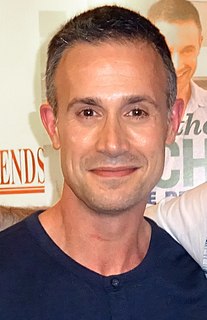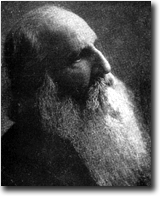A Quote by Jack London
He was sounding the deeps of his nature, and of the parts of his nature that were deeper than he, going back into the womb of Time.
Related Quotes
Da Vinci was as great a mechanic and inventor as were Newton and his friends. Yet a glance at his notebooks shows us that what fascinated him about nature was its variety, its infinite adaptability, the fitness and the individuality of all its parts. By contrast what made astronomy a pleasure to Newton was its unity, its singleness, its model of a nature in which the diversified parts were mere disguises for the same blank atoms.
Gargoyles were the complement to saints; Leonardo's caricatures were complementary to his untiring search for ideal beauty. And gargoyles were the expression of all the passions, the animal forces, the Caliban gruntings and groanings which are left in human nature when the divine has been poured away. Leonardo was less concerned than his Gothic predecessors with the ethereal parts of our nature, and so his caricatures, in their expression of passionate energy, merge imperceptibly into the heroic.
My dad was young. He went to work. But he'd been to war. He'd seen some of the world. It wasn't like he was going to be an extensive traveler or something. That didn't seem to be in the nature of - in his nature or in the nature of his parents or many of the folks in my family, really. They were - we had a cousin that went to - off to Brown University. It was like a nuclear explosion took place.
Men are impatient, and for precipitating things; but the Author of Nature appears deliberate throughout His operations, accomplishing His natural ends by slow, successive steps. And there is a plan of things beforehand laid out, which, from the nature of it, requires various systems of means, as well as length of time, in order to the carrying on its several parts into execution.
I just want people to recognize my father as an artist who was way ahead of his time. He was a genius. His life just burnt out quicker than it should have. And that is unfortunate, but what is more unfortunate is that everybody focuses on the nature of his death as opposed to the nature of his life, which was so much greater and more important.
God, Who is by nature good and dispassionate, loves all men equally as His handiwork. But He glorifies the virtuous man because in his will he is united to God. At the same time, in His goodness he is merciful to the sinner and by chastising him in this life brings him back to the path of virtue. Similarly, a man of good and dispassionate judgment also loves all men equally. He loves the virtuous man because of his nature and the probity of his intention; and he loves the sinner, too, because of his nature and because in his compassion he pities him for foolishly stumbling in darkness.
Man is not by any means of fixed and enduring form (this, in spite of suspicions to the contrary on the part of their wise men, was the ideal of the ancients). He is nothing else than the narrow and perilous bridge between nature and spirit. His innermost destiny drives him on to the spirit and to God. His innermost longing draws him back to nature, the mother. Between the two forces his life hangs tremulous and irresolute.






































